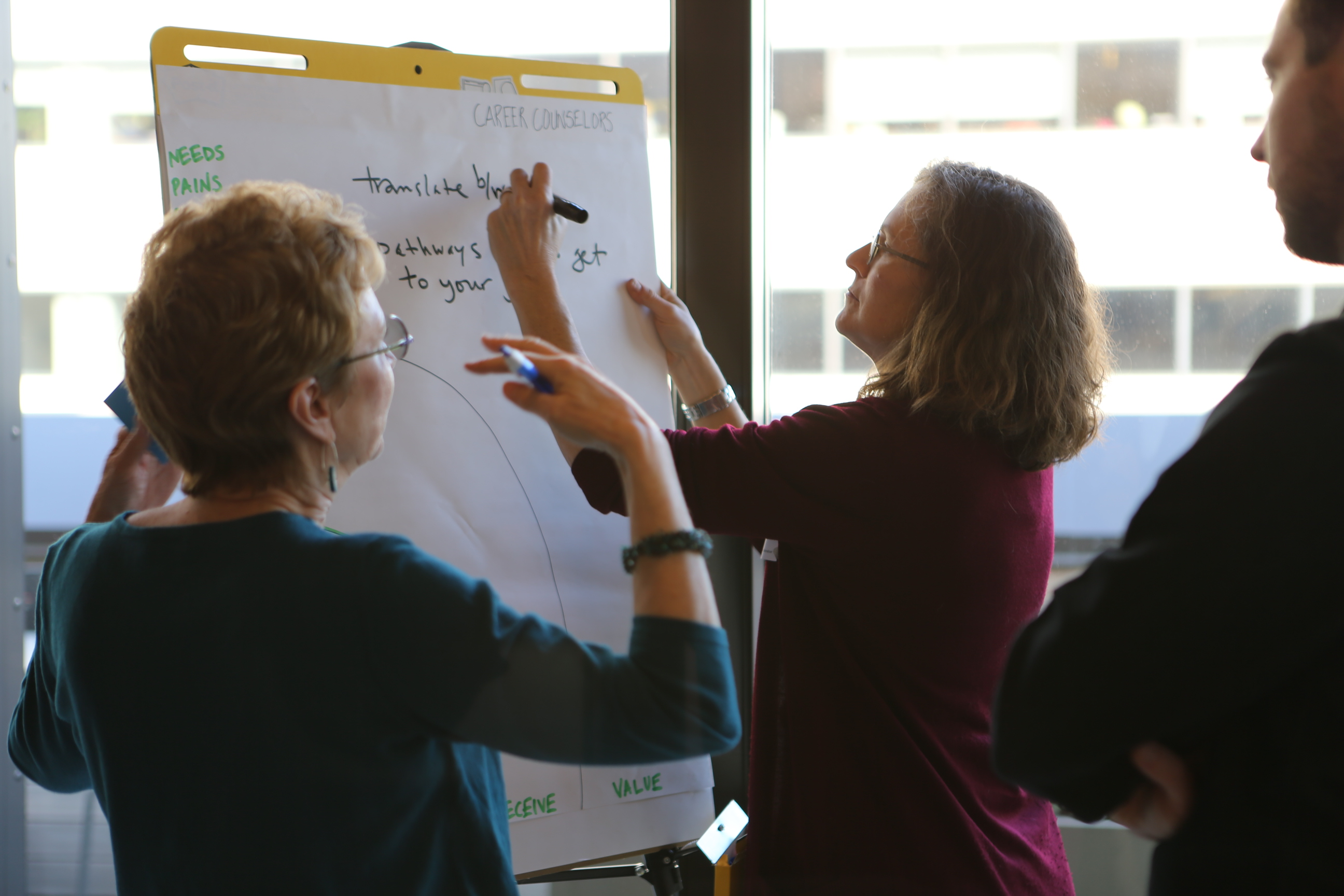Workforce patterns are constantly changing, and they are not easy to predict. But a new app, currently in development by Arizona State University and other top researchers, may be able to help U.S. companies, institutions and workers understand which jobs are relevant and which jobs will become obsolete in the future.
On Feb. 18, experts from a variety of industries met at ASU’s Ambassador Barbara Barrett and Justice Sandra Day O’Connor Washington Center to discuss new approaches in workforce development, and to provide feedback on ADAPTIVE, a new app funded by the National Science Foundation.
A transdisciplinary team of researchers from ASU, Oregon State University and Indiana University — along with private corporations and nonprofits interested in revamping workforce development — are working on the user-friendly tool.
ADAPTIVE will be able to help workers identify skills they need to advance their careers or to learn about re-skilling, coursework, or certifications that might be necessary to switch jobs or set off on a different career arc. By using artificial intelligence, ADAPTIVE will create future-proof career trajectories from various national databases and provide easy access to tailored career advice via a “GPS-like navigation system.” ADAPTIVE will also help people forecast future career opportunities and possible ways to reapply existing skills, a feature designed to manage migration out of occupations that are expected to become obsolete.
“The jobs we have now might end up being the past,” said Katy Borner, professor of engineering and science at Indiana University Bloomington. “Today, we can use data to help people understand the future and their long-term prospects and how to connect them to job offerings — through ASU or other universities or commercial enterprises.”
Stakeholders invited to the Washington Center analyze the benefits and challenges of the new ADAPTIVE app, currently in development by ASU and other top researchers. The tool, funded by the National Science Foundation, may one day help companies and workers understand the fast-changing workforce, and how to develop and train the next generation of employees. Photo by Hager Sharp
ASU has been a leader in expanding access to job training and flexible learning. The university is a major partner with InStride, a program designed to help employers connect their employees to educational opportunities that will help employers’ businesses. ASU has also partnered with Starbucks and Uber to offer employees access to education in order to help reorient their career paths. ADAPTIVE is a new step for ASU’s involvement in enhancing future workforce development and helping to evolve the needs of the workforce.
Since ADAPTIVE is in the early stages of development, participants were asked to discuss issues related to politics, technology, economics and education that may affect the tool’s design or production. Following the feedback, stakeholders expressed interest in the prototype and a desire to test its capabilities. Ultimately, the ADAPTIVE team hopes to build a larger coalition to bring in more voices and perspectives to help build this new program.
“I think this is something many of us care deeply about,” Borner said. “It’s a lifelong learning trajectory that we are all part of and want to engage others in.”
Top image: Illustration courtesy of Getty Images/iStockphoto
More Science and technology

America stress-tested its food system, and it mostly held
In the spring of 2020, Americans watched grocery store shelves empty in real time. Flour vanished. Meat became scarce and expensive. Potatoes were suddenly everywhere and nowhere. It felt like the…

ASU helps communities envision solutions for nuclear waste
Nuclear energy is getting another look.With rising energy demand — driven in part by AI-related data centers — the United States is evaluating investment in nuclear power. It’s the largest source of…

Time-consuming task of conserving Jane Goodall Institute field notes gets a boost from AI
Arizona State University is continuing the legacy of scientist, conservationist and ethologist Jane Goodall by bringing decades of research into the digital age using AI.In March 2022, the Jane…

